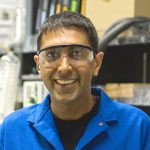
What's that on your breath? In episode 79 of Parsing Science we talk with Neil Garg from UCLA about his research into the fundamental chemistry necessary for the creation of a small, electronic test of marijuana that works by way of a simple electrochemical oxidation process similar to that used ...
Listen to Episode
Listen to Episode
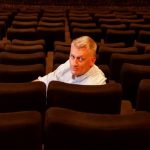
Might the chemicals we exhale while watching movies tell us about the emotional stress that we're experiencing? In episode 41, Jonathan Williams from the Max Planck Institute for Chemistry in Mainz, Germany discusses his research analyzing the gasses emitted in cinemas, as described in his article "Proof of concept study: Testing human ...
Listen to Episode
Listen to Episode
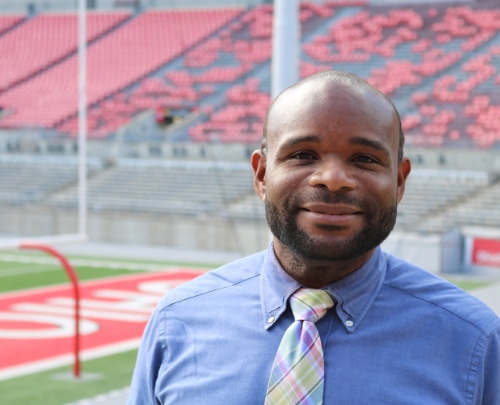
What impact did Black politicians have during the Reconstruction? In episode 77, Trevon Logan from The Ohio State University's Department of Economics discusses his research into the election of Black politicians after the Civil War ended in 1865, which led to increased tax revenues that were put toward public schools ...
Listen to Episode
Listen to Episode

How well can doctors and nurses really predict the outcomes of their ICU patients? In this episode, Scott Halpern from the University of Pennsylvania's School of Medicine, discusses how he and his colleagues explored the accuracy of ICU physicians and nurses in predicting the health outcomes of their patients. Their ...
Listen to Episode
Listen to Episode
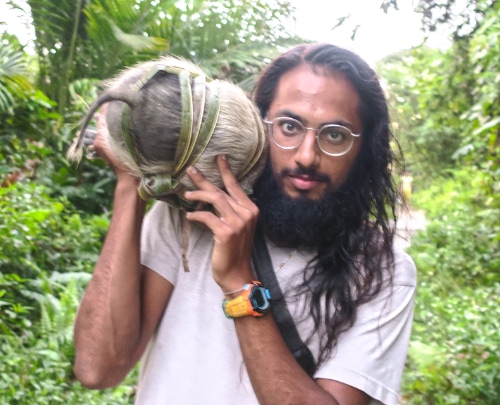
Why do religious leaders abstain from some pleasures? In episode 83, Manvir Singh from Harvard University's Department of Human Evolutionary Biology discusses his research into why shaman healers among the a group of people off the coast of Indonesia observe costly prohibitions, such abstinence or food restrictions, especially given that ...
Listen to Episode
Listen to Episode
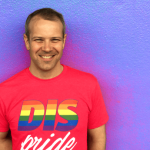
Sneak peek of special LGBTSTEMDay episode, which airs July 5. Bryce Hughes will discuss with us his research into the retention of LGBT undergraduates in STEM. Bryce's full paper, "Coming out in STEM: Factors affecting retention of sexual minority STEM students," was published in Science Advances on March 14, 2018 ...
Listen to Episode
Listen to Episode

Are drivers of more expensive cars really the jerks we make them out to be? In Episode 73, Courtney Coughenour and Jennifer Pharr from the University of Nevada, Las Vegas discuss their research into what differentiates drivers who are likely to yield for pedestrians in crosswalks from those who don't. Their ...
Listen to Episode
Listen to Episode
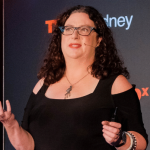
The rich archaeological records of human space exploration can tell us much about human behavior, geopolitics, and the history of science and technology. In this episode we're joined by Alice Gorman of Flinders University in South Australia. Alice tells us about her research that explores archaeological perspectives derived from the ...
Listen to Episode
Listen to Episode
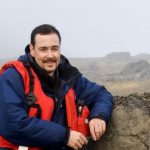
Ordinary objects from the recent past often hold secrets about our cultural history. In episode 38, P.J. Capelotti from Penn State University Abington talks with us about the history, archaeology, and anthropology of exploration as he writes about it in his recent book Adventures in Archaeology: The Wreck of the Orca II ...
Listen to Episode
Listen to Episode
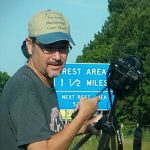
While we often associate archaeology with the study of cultures whose eras have long-since come and gone, artifacts from the recent past can tell us about culture as well. Part one of our conversation with P.J. Capelotti from Penn State University Abington concerned terrestrial archaeology. In part two, we talk about his explorations of aeronautical and ...
Listen to Episode
Listen to Episode

To what extent could "coming out" be a useful analogy for the process of coming to identify as Deaf? In episode 44, Laura Mauldin from the University of Connecticut discusses her research into this question as detailed in her open-access article "'Coming out' rhetoric in disability studies: Exploring its fit ...
Listen to Episode
Listen to Episode

Might we be better able to understand what's going on inside the "black box" of machine learning algorithms? In episode 53, Been Kim from Google Brain talks with us about her research into creating algorithms that can explain why they make the recommendations they do via concepts that are relatable ...
Listen to Episode
Listen to Episode

"Nothing in life is certain," writes MIT mechanical engineer Seth Lloyd, "except death, taxes and the second law of thermodynamics." But is this necessarily so? In episode 52, we're joined by Andreas Schilling with the University of Zurich, who discusses his development of an amazingly simple device that allows heat ...
Listen to Episode
Listen to Episode

As 2017 comes to a close, we revisit our first 12 interviews to highlight some of the themes and trends across our inaugural episodes. Clips highlight everything from planning and carrying out research studies to the trials and tribulations of academic publishing. We also hear from guests about the use ...
Listen to Episode
Listen to Episode
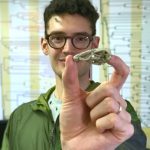
Might a 66.7-million-year-old "turducken" be the world's oldest bird? In episode 75, Daniel Field from the Department of Earth Sciences at the University of Cambridge discusses his research into a bird that mashes up features from chickens, turkeys, and ducks. Its fossil provides the best evidence so far of when ...
Listen to Episode
Listen to Episode
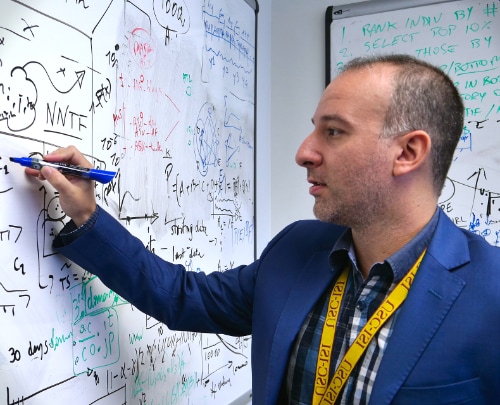
How are automated social media bots manipulating our political discourse? In episode 91, Emilio Ferrara from the University of Southern California discusses his research into bots' amplification of conspiracies theories across more than 240 million tweets regarding the 2020 U.S. presidential election. His open-access article "Characterizing social media manipulation in ...
Listen to Episode
Listen to Episode
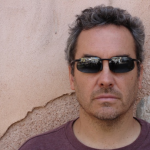
In episode 14 we talk with Rafael Núñez from the University of California San Diego about his research into if human understanding of number has developed through biological evolution, or through the evolution of language and culture. His article, "Is There Really an Evolved Capacity for Number?," was published in ...
Listen to Episode
Listen to Episode

Can stereotypes about Christians really limit who pursues science? In this episode, Kim Rios from Ohio University discusses how self-concepts and group identities may change how we look at the role of religion in science. Kim tells the stories behind her article "Negative Stereotypes Cause Christians to Underperform in and ...
Listen to Episode
Listen to Episode
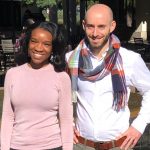
Can cognitive biases and heuristics regarding race influence U.S. Supreme Court decisions? In episode 40, Jonathan Feingold and Evelyn Carter from the University of California, Los Angeles (UCLA) discuss the sometimes selective use of social science research by U.S. Supreme Court Chief Justice William Rehnquist as analyzed in their article "Eyes Wide Open: ...
Listen to Episode
Listen to Episode
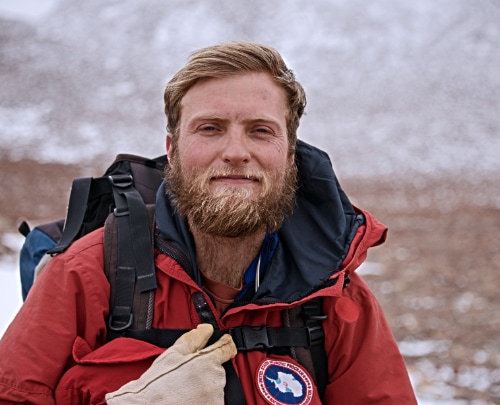
How did a Cold War era debacle help us better understand the dangers of climate change? In episode 99 of Parsing Science, we talk with Drew Christ from the University of Vermont about his research into how fossils plucked from forgotten experiment in the Arctic led to his discovery the ...
Listen to Episode
Listen to Episode
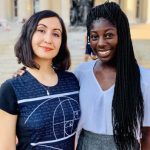
Can communication across networks of people be optimized to share information, while at the same time lessening the likelihood of information bubbles and echo chambers? In Episode 54, we're joined by Ida Momennejad and Ajua Duker from Columbia University and Yale University, respectively, to discuss their open-access article “Bridge ties ...
Listen to Episode
Listen to Episode
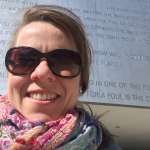
Niki den Nieuwenboer from the University of Kansas' School of Business talks with us about her research on how middle-managers can manipulate organizational structures to coerce their staff into unethical behaviors to inflate both of their apparent performance. Her paper, "Middle Managers and Corruptive Routine Translation: The Social Production of ...
Listen to Episode
Listen to Episode
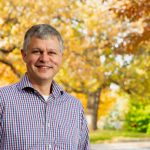
Why Velcro 3D glasses onto cuttlefish? In Episode 69, Trevor Wardill from the Department of Ecology, Evolution and Behavior at the University of Minnesota discusses his research into the previously unknown ability of the cephalopod to see in stereo vision. His article, “Cuttlefish use stereopsis to strike at prey,“ was published along ...
Listen to Episode
Listen to Episode
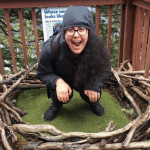
Righting a 200 year old mistake: Armita Manafzadeh from Brown University talks with us about how her simulations of pterosaurs' range-of-motion demonstrate that the ancient reptiles almost certainly couldn't have flown like most paleontologists have long thought they did. Her open-access article, "ROM mapping of ligamentous constraints on avian hip mobility: ...
Listen to Episode
Listen to Episode
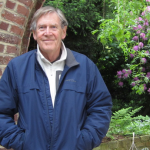
Bill Clark from the University of California Los Angeles discusses his research applying the endowment effect of Prospect Theory to decisions of why people move from, or stay in, their homes. His open-access article, "Prospect theory and the decision to move or stay," co-authored with William Lisowski, was published in ...
Listen to Episode
Listen to Episode
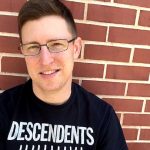
Because 98% of the human genome doesn't serve a direct role in gene expression, many biologists have long thought of them as nothing but "junk DNA." But might they hold the key to helping stem the formation of deadly cancers? In episode 34, Mike Feigin from Roswell Park Comprehensive Cancer Center talks with ...
Listen to Episode
Listen to Episode
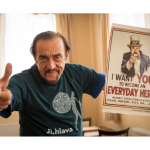
What leads people to stand up against authoritarianism? Philip Zimbardo, Professor Emeritus from Stanford University and lead investigator on the Stanford Prison Experiment, talks with us about his new research into how social modeling influences the likelihood of disobeying unjust authority figures. His open-access article "On the dynamics of disobedience: ...
Listen to Episode
Listen to Episode
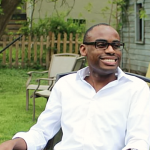
No matter whether you think you can or can't, the saying goes, you're right. Neil Lewis, Jr. from Cornell University talks with us in episode 29 about about his research into what differentiates students who experience difficulty in college as signaling its importance from those that make it mean that completing college is ...
Listen to Episode
Listen to Episode
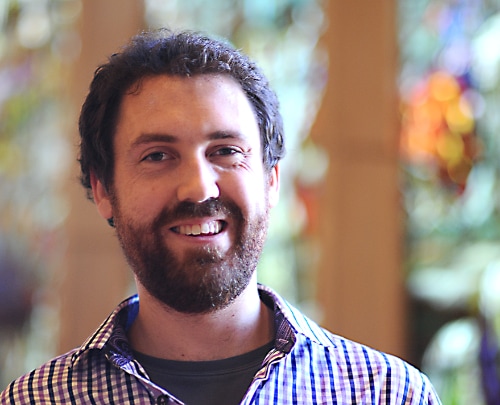
What can DNA tell us about the migration of the earliest modern humans and other hominins? In episode 98 of Parsing Science, we talk with João Teixeira from the University of Adelaide about his research which examined the genomes of modern humans to investigate the interbreeding between ancient humans and modern ...
Listen to Episode
Listen to Episode

In striving to develop expertise, are 10,000 hours of deliberate practice really required, and must it be guided by a teacher or coach? In episode 59, we're joined by Brooke Macnamara from Case Western Reserve University. She'll discuss her attempted replication of the study which led to the mantra popularized by ...
Listen to Episode
Listen to Episode

Just how rampant is scientific misconduct? In episode 51, Elisabeth Bik talks with us about her research suggesting that as many as 35,000 papers in biomedicine journals may be candidates for retraction due to inappropriate image duplication. Her open-access article, “Analysis and Correction of Inappropriate Image Duplication: the Molecular and ...
Listen to Episode
Listen to Episode
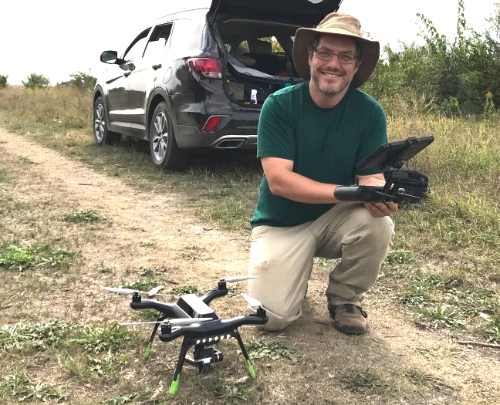
How can drones help us find settlements long-lost to time? In episode 89, Jesse Casana from Dartmouth College's Department of Anthropology discusses his research into using multi-sensor drones to collect data about a major Native American settlement in what is now Southeastern Kansas. His article "A Council Circle at Etzanoa? ...
Listen to Episode
Listen to Episode
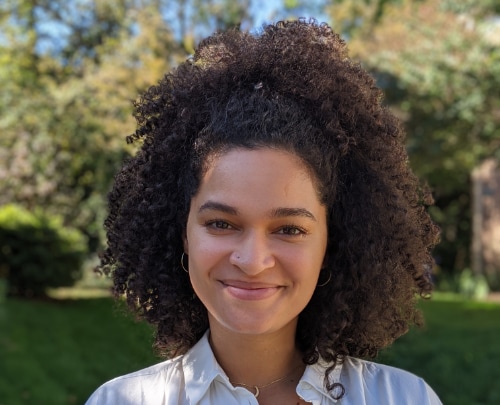
How did the earliest and largest clusters of galaxies form? In episode 88, Arianna Long from the University California - Irvine talks with us about her research into the emergence of massive dusty star-forming galaxies that developed billions of years ago. Her article “Emergence of an Ultra-Red Ultra-Massive Galaxy Cluster Core ...
Listen to Episode
Listen to Episode
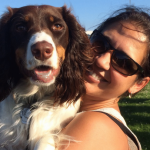
In this episode we talk with Laura Stephenson from the University of Western Ontario about her research into how the structures of electoral systems can shape support for female political candidates. Her open-access article "Votes for Women: Electoral Systems and Support for Female Candidates" with Sona N. Golder and six ...
Listen to Episode
Listen to Episode
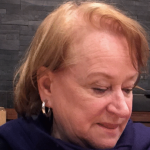
Sometimes our emotions and the power of illusions can put our sense of reality to the test. In this special Halloween episode, Beatrice de Gelder from Maastricht University in The Netherlands shares stories behind her study "Affective vocalizations influence body ownership as measured in the rubber hand illusion," which she coauthored ...
Listen to Episode
Listen to Episode
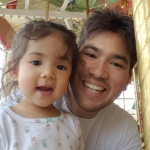
Michael Kraus from Yale University's School of Management talks with us about his research examining the role of the voice in our capacity to accurately estimate the emotions of others. His open-access article, "Voice-Only Communication Enhances Empathic Accuracy", was published in the American Psychologist in October of 2017. Websites Supplemental materials for ...
Listen to Episode
Listen to Episode

When real-time fMRI neurofeedback improves people's symptoms long after treatment, might that influence the guidance that's provided to patients, and also inform the design of future clinical trials? In episode 60, we're joined by Michelle Hampson from Yale University's School of Medicine. She discusses her finding that people suffering from ...
Listen to Episode
Listen to Episode
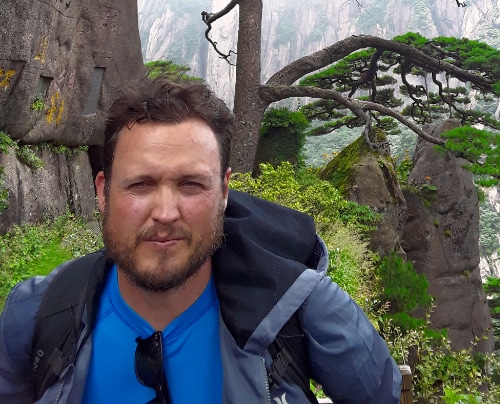
What can a video game teach us about our epistemic philosophy? In episode 93, Luke Cuddy from Southwestern College’s philosophy program talks with us about the video game The Witness, which presents players with a multitude of increasingly sophisticated and frustrating puzzles that perhaps result from the theory of knowledge ...
Listen to Episode
Listen to Episode
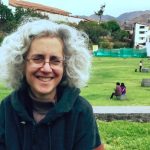
Why are bold, broad, and terse depictions of science perceived as more important, robust and generalizable than nuanced ones? In episode 63, we're joined by Susan Gelman from the University of Michigan, who talks with us about her research into the use of generic language in scientific papers. Her article ...
Listen to Episode
Listen to Episode
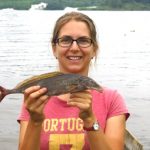
How do some fish see color in the black-and-white world of the ocean's depths? In episode 55, Zuzana Musilová, an evolutionary biologist at Charles University in Prague, discusses her research into the unique way that some fish in the deep ocean’s darkness may be able to see in color. Her ...
Listen to Episode
Listen to Episode
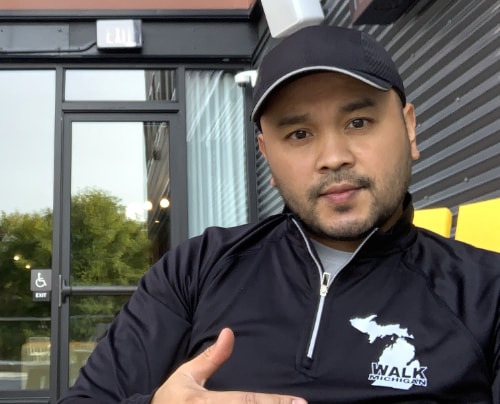
Can we knowingly fake ourselves out? In episode 86 of Parsing Science we talk with Darwin Guevarra from Michigan State University about his research exploring how placebos sometimes have the power to reduce neural markers of emotional distress, even in cases in which people are told told that they're only ...
Listen to Episode
Listen to Episode

Are adolescents' technology use really related to depression, suicide and ADHD, or might it be no worse for kids than eating potatoes? In episode 47, Amy Orben from the University of Oxford discusses her explorations into how researchers' biases can influence their analysis of large datasets. Her article "The association ...
Listen to Episode
Listen to Episode
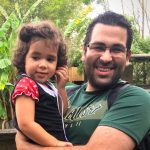
The global decline of births from 1990 and 2015 has to a reduction in the proportion of people aged 15-29. So might this explain why the world’s homicide rate has dropped by nearly 20%? In episode 64, we’re joined by Mateus Rennó Santos from the University of South Florida. He talks ...
Listen to Episode
Listen to Episode
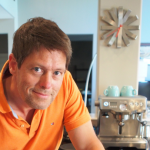
Can we put the brakes on cancers' ability to metastasize? In episode 33, John Lewis from the University of Alberta talks with us about his research into inhibiting cancer cell movement and metastasis through genomic targets. His open-access article "Quantitative in vivo whole genome motility screen reveals novel therapeutic targets to block cancer ...
Listen to Episode
Listen to Episode

How can what engineers learn from how barn owls pinpoint the location of the faintest sounds apply to their development of nanotechnologies capable of doing even better? In episode 61, we're joined by Saptarshi Das, a nano-engineer from Penn State University, who talks with us about his open-access article "A ...
Listen to Episode
Listen to Episode
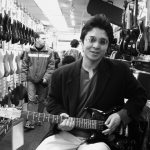
Might early hearing impairment lead to cognitive challenges later in life? Yune Lee from the Ohio State University talks with us in episode 30 about his research into how even minor hearing loss can increase the cognitive load required to distinguish spoken language. His open-access article "Differences in hearing acuity among ...
Listen to Episode
Listen to Episode
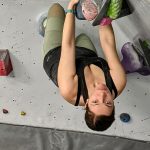
Did you catch that? In episode 66, Katherine Wood from the University of Illinois discusses her research with the scientist behind the famous “Invisible Gorilla” experiments, Daniel Simons, into if and when people notice unexpected objects in inattentional blindness tasks. She discusses her and Simons' article “Now or never: Noticing occurs ...
Listen to Episode
Listen to Episode

How are Black women using social media to develop community and identity? In episode 85 we talk with Kyesha Jennings from North Carolina State University Department of English about her analysis of what the wildly popular meme "hot girl summer" - drawn from lyrics by hip-hop phenomenon, Megan Thee Stallion ...
Listen to Episode
Listen to Episode
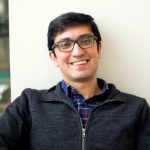
By now, we're all familiar with the idea that social media can - and has - been used to spread untruths. But why does this work? Soroush Vosoughi from MIT's Laboratory for Social Machines and Harvard's Berkman Klein Center talks with us in episode 20 about his research into how false news disseminates ...
Listen to Episode
Listen to Episode
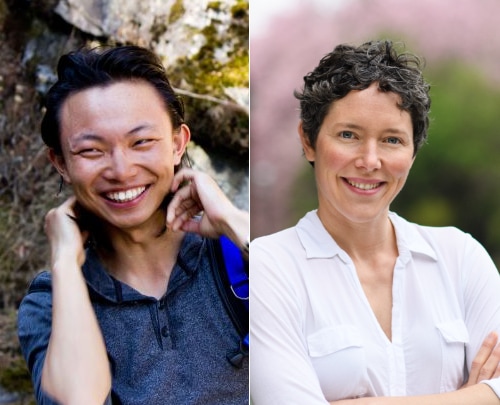
Why do mosquitoes prefer us over other animals? In episode 94, we talk with Zhilei Zhao and Lindy McBride from Princeton about their research into how mosquitoes that can carry dangerous diseases - such as Zika, dengue https://www.team-medic.com, West Nile virus and malaria - are able to track us down so ...
Listen to Episode
Listen to Episode
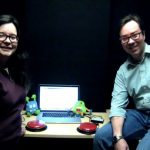
What can the chance discovery of an illusion tell us about how our eyes and brains work together? Ben Balas from North Dakota State University talks with us in episode 37 about his research into the Flashed Face Distortion Effect, an illusion in which normal faces – when rapidly presented in people’s peripheral vision ...
Listen to Episode
Listen to Episode
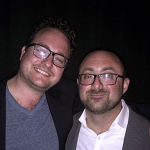
Many people hear voices that aren't really there. It drives some to seek psychiatric treatment, but others are able to make use of it in healthy ways. In this episode, Al Powers and Phil Corlett from Yale University talk about their research into the similarities and differences between these two ...
Listen to Episode
Listen to Episode
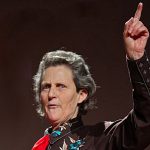
How can research improve the lives of livestock, even as they're on their way to slaughter? In episode 67, Temple Grandin from the Colorado State University's College of Agricultural Sciences talks with us about her work on promoting improved communications between academic researchers and those in the animal agriculture industry ...
Listen to Episode
Listen to Episode
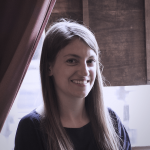
What might migration patterns tell us about how modern languages came about? Vanderbilt University's Nicole Creanza talks with us about her research into how migration during the colonial era contributed to the development of the creole language, Sranan. Her open-access article "Using features of a Creole language to reconstruct population history and ...
Listen to Episode
Listen to Episode

Why are less-than-college-educated White men in the US so much less happy and more desperate than their international counterparts? In episode 49, Carol Graham from the Brookings Institution and the University of Maryland talks with us about her research into why younger out-of-work men in the United States are so ...
Listen to Episode
Listen to Episode
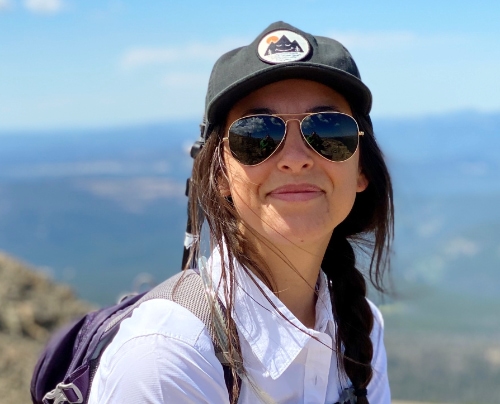
Does spanking really have lasting impacts on kids' later lives? In episode 82, Nicole Barbaro from Western Governors University Labs talks with us about her research into the factors that determine the answer to this question. Her study “The effects of spanking on psychosocial outcomes: revisiting genetic and environmental covariation” ...
Listen to Episode
Listen to Episode
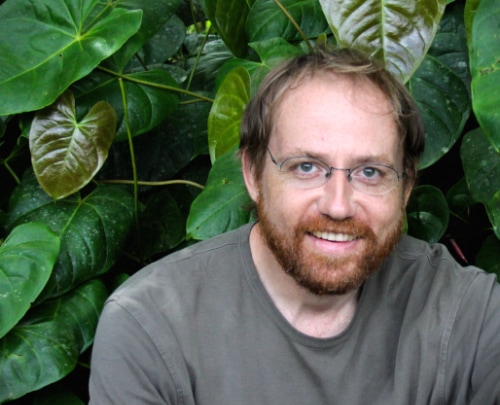
Do monkeys know how much fruit your sunglasses are worth? In episode 96 of Parsing Science, we talk with Jean-Baptiste "JB" Leca from the University of Lethbridge's Department of Psychology about his field research observing interactions among macaques at a Hindu temple in Bali. There, the monkeys have learned to ...
Listen to Episode
Listen to Episode
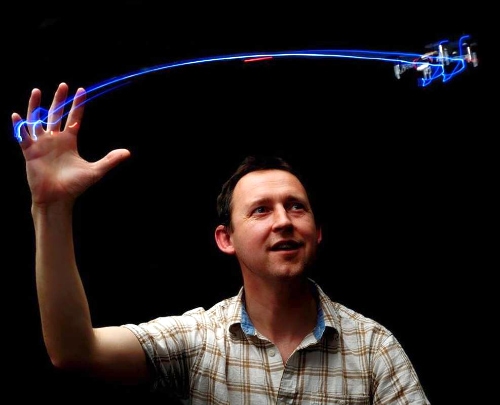
What if mosquitos weren't just annoying bugs, but instead were bio-inspiring features? In episode 78, we talk with Richard Bomphrey from the University of London’s Royal Veterinary College about how mosquitoes can detect surfaces using the airflow caused by the movement of their own wings … and the autonomous drones ...
Listen to Episode
Listen to Episode
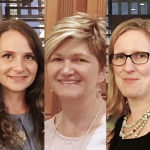
Do people who willingly hold down multiple careers at the same time struggle like the rest of us to find authenticity in their work? Brianna Caza, Sherry Moss & Heather Vough (of the University of Manitoba, Wake Forest University, and the University of Cincinnati) talk with us about what their research ...
Listen to Episode
Listen to Episode
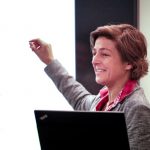
What changes when we attempt to measure personality outside of the contexts where the instruments were developed and validated? In episode 57, we're joined by Karen Macours from the Paris School of Economics about her research into practical issues with using a popular Big Five personality measures outside of western, ...
Listen to Episode
Listen to Episode
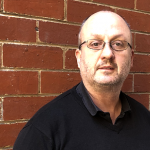
While various vertebrates have been taught to learn humans' concept of "zero," might too honey bees, even though their brains have thousands of times fewer neurons? In episode 31 Adrian Dyer from RMIT and Monash University in Australia talks with us about his work first teaching bees to count and then extrapolate ...
Listen to Episode
Listen to Episode
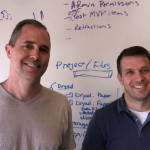
Open access to both the scientific process and results should be the default, not the exception. In the first of this two-part episode, Brian Nosek and Tim Errington from the Center for Open Science talk about the important role of open science in accelerating scientific progress, as discussed in their ...
Listen to Episode
Listen to Episode

Reproducing research results can help accelerate the scientific progress. In the second half of this two-part episode, Tim Errington and Brian Nosek from the Center for Open Science share insights from their the Center's replication of a high-profile anti-cancer treatment study. In the episode Tim also discusses how the preregistration of ...
Listen to Episode
Listen to Episode
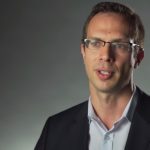
Whether intentionally or unintentionally, might the manipulation of statistics in marketing research be costing companies millions? In episode 43, Ron Berman from the University of Pennsylvania's Wharton School of Business discusses in his open-access article "p-Hacking and False Discovery in A/B Testing," co-authored with Leonid Pekelis, Aisling Scott, and Christophe Van ...
Listen to Episode
Listen to Episode
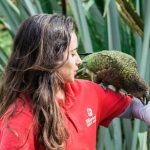
Very few animals can combine information to adjust their predictions in a flexible way by using domain-general intelligence as humans do. In episode 74, Amalia Bastos from the University of Auckland discusses her research demonstrating that kea parrots can make predictions based in probabilities, and adjust those predictions based on ...
Listen to Episode
Listen to Episode
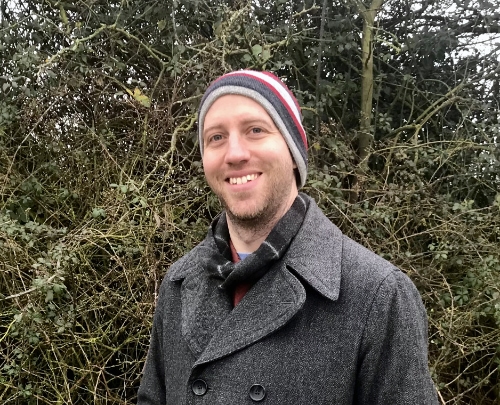
What do changes in our beliefs about the death of our pets over the past century say about the relationship we have with our companion animals? In episode 90, Eric Tourigny from Newcastle University's School of History, Classics and Archaeology discusses his research into historic pet cemeteries and how they ...
Listen to Episode
Listen to Episode
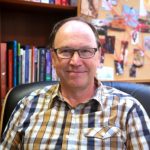
Is it an actual conspiracy, or just a theory about one? In episode 81, Tim Tangherlini from the University of California Berkeley’s Folklore Program discusses his research into how conspiracy theorists interpret and use what they believe is “hidden knowledge” to connect multiple human interactions that are otherwise unlinked ...
Listen to Episode
Listen to Episode
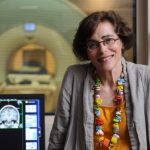
Might our brains have greater plasticity than commonly thought? In episode 36, Marlene Behrmann from Carnegie Mellon University, discusses her 3-year longitudinal investigation of a young boy who had the region of his brain which recognizes faces removed, but regained this ability through neural plasticity. Her open-access article "Successful Reorganization ...
Listen to Episode
Listen to Episode
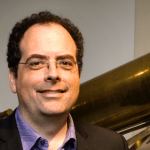
Almost lost to history, these toys quite literally put quantum mechanics at one’s fingertips. In episode 35, Jean-François Gauvin from Université Laval in Canada discusses how he came to understand the purpose and value of unique toy blocks that ended up on his desk at Harvard University in 2014 as the ...
Listen to Episode
Listen to Episode
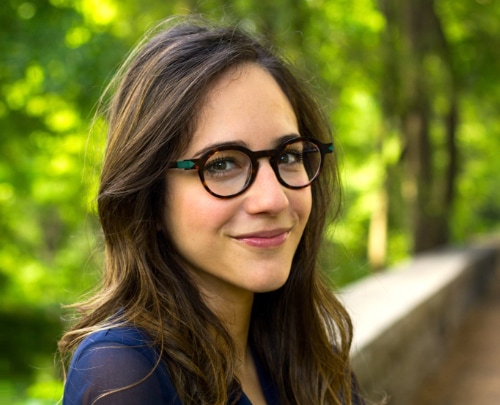
How much can you trust people's retelling of information the've read? In episode 95, Shiri Melumad from the University of Pennsylvania’s Wharton School of Business discusses her research showing that when – much like the children’s game “telephone” – news is repeatedly retold, it undergoes a stylistic transformation through which ...
Listen to Episode
Listen to Episode
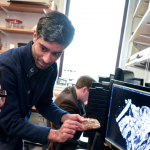
What can prehistory tell us about the origins of modern birds? Bhart-Anjan Bhullar from Yale University talks with us about how the discovery of a 95 million year old Ichthyornis fossil in 2014 revealed some unexpected insights into the minds — and mouths — of today's birds. His article, "Complete Ichthyornis skull illuminates mosaic ...
Listen to Episode
Listen to Episode
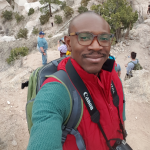
In this episode we talk with Folarin Kolawole from the University of Oklahoma about his research into how the reactivation of faults can lead to earthquakes in places where they've never before occurred in recorded history. His open-access article "Aeromagnetic, gravity, and Differential Interferometric Synthetic Aperture Radar analyses reveal the ...
Listen to Episode
Listen to Episode

In celebration of LGBTSTEMDay, we talk with Bryce Hughes of Montana State University about his research into the factors that influence the retention of LGBQ students in STEM programs. His open-access article, "Coming out in STEM: Factors affecting retention of sexual minority STEM students" was published on March 14, 2018 ...
Listen to Episode
Listen to Episode
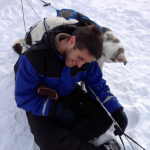
Adam Morris from Harvard University's Department of Psychology talks with us about his game theory research into why people engage in retribution with little regard for its effectiveness, yet they respond to punishment from others with flexibility based on costs and benefits. His open-access article "Evolution of Flexibility and Rigidity ...
Listen to Episode
Listen to Episode
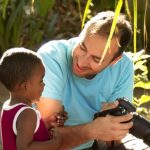
Sure, you might have a tongue piercing. But would you consider something far more extreme for a bump on the social ladder? In episode 62, we're joined by Dimitris Xygalatas from the University of Connecticut, who talks with us about how extravagant and painful rituals can foster greater subjective health ...
Listen to Episode
Listen to Episode

Can the sharing of drum break samples among musicians help us better understand how networks of artists collaborate? In episode 48, Mason Youngblood from the City University of New York discusses his research into the cultural transmission of digital music samples through collaborative networks of musicians. His article, "Cultural transmission ...
Listen to Episode
Listen to Episode
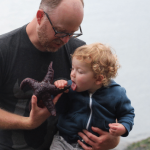
What matters more in getting cited — what you say or how you say it? In our first episode of the show we're visited by Ryan Kelly from the University of Washington's School of Marine and Environmental Affairs. He talks with us about his article "Narrative Style Influences Citation Frequency ...
Listen to Episode
Listen to Episode
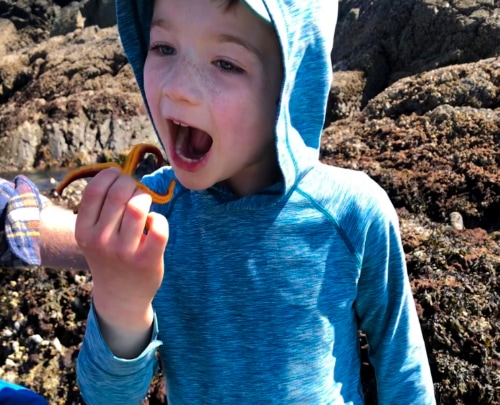
What matters more in getting cited — what you say or how you say it? In this remastered and remixed version of our first episode of the show, we're revisited by Ryan Kelly from the University of Washington's School of Marine and Environmental Affairs. He talks with us about his ...
Listen to Episode
Listen to Episode
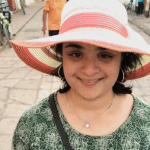
A picture may be worth 1000 words, but can we also teach computers to create stories from the stories that lie inside our images? In this episode, Devi Parikh of Georgia Tech’s school of interactive computing discusses her work training computers to determine the semantic meaning within images. Devi talks ...
Listen to Episode
Listen to Episode
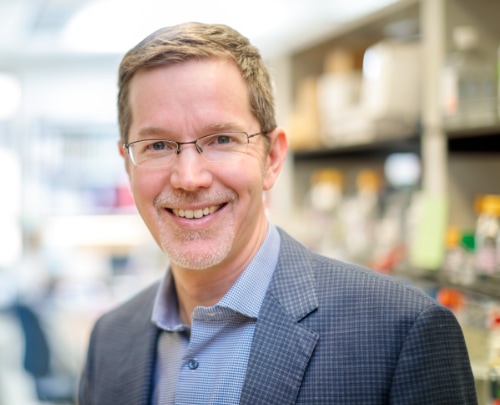
How could a gene that causes one type of ALS be switched off? In episode 87, Tim Miller from the Washington University in St. Louis discusses his research into therapies that target the single strands of DNA or RNA which cause many cases of amyotrophic lateral sclerosis, also known as ...
Listen to Episode
Listen to Episode
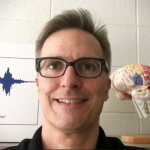
Can auditory errors and illusions better help us understand how the brain works? In episode 32 Mike Vitevitch from the University of Kansas talks with us about his research into the cognitive mechanisms underlying the Speech-to-Song auditory illusion. His open-access article "An account of the Speech-to-Song Illusion using Node Structure Theory" ...
Listen to Episode
Listen to Episode
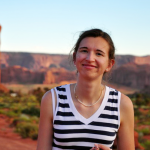
Anna-Sophia Wahl — a neuroscientist with the Brain Research Institute at the Swiss Federal Institute of Technology, in Zurich, as well as a physician with the Central Institute of Mental Health in Mannheim, Germany — talks with us about her open-access article "Optogenetically stimulating intact rat corticospinal tract post-stroke restores motor control ...
Listen to Episode
Listen to Episode
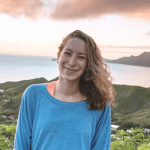
Might police shootings of unarmed African Americans have anything to do with state-level structural racism? Anita Knopov from Boston University joins us to talk about her study "The Relationship Between Structural Racism and Black-White Disparities in Fatal Police Shootings at the State Level," published in The Journal of the National Medical ...
Listen to Episode
Listen to Episode

How can a satellite the size of a loaf of bread take the heat of operating in the extreme conditions existing in space without overheating? In episode 56, we're joined by Naia Butler-Craig from the Georgia Institute of Technology to discuss her open access article “An investigation of the system ...
Listen to Episode
Listen to Episode
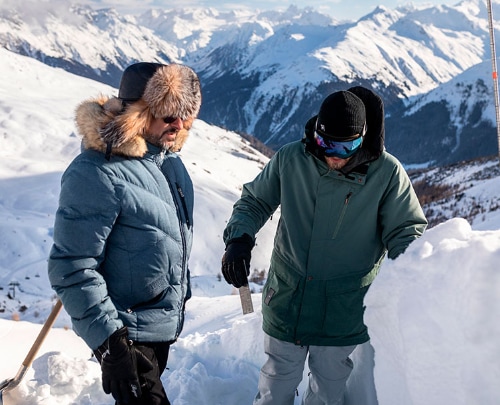
Can science help solve a real-life mystery? In episode 97 of Parsing Science, we talk with Alexander Puzrin from ETH Zurich about his research into The Dyatlov Pass incident, a 62-year-old mystery involving the deaths of nine hikers in the freezing Russian wilderness, a tragedy that’s been attributed to everything ...
Listen to Episode
Listen to Episode

How do our brains respond when people behave in unpredictable ways? In episode 80, Jordan Theriault from Northeastern University discusses his research into a set of brain regions which, when activated by a variety of social tasks, can provide insights into how we judge the moral objectivity or subjectivity of ...
Listen to Episode
Listen to Episode
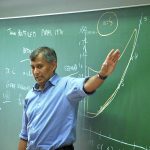
Can even a single-celled organism truly learn? In Episode 70, Jeremy Gunawardena with the Department of Systems Biology at Harvard Medical School talks with us about his replication of an experiment originally conducted over a century ago, which suggested that at least one single-cell organism - the trumpet-shaped Stentor roeseli ...
Listen to Episode
Listen to Episode
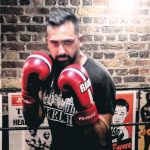
What can brain scans of radicalized jihadists tell us about how they react to what they perceive as attacks on their sacred values? In episode 58, we're joined by Nafees Hamid from Artis International who talks with us about his article “Neuroimaging ‘will to fight’ for sacred values: an empirical ...
Listen to Episode
Listen to Episode
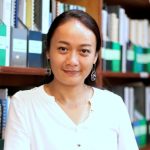
Are wild tigers now extinct in Laos? In episode 72, Akchousanh "Akchou" Rasphone from Oxford's Wildlife Conservation Research Unit discusses her research which concludes that improvised snares appear to have decimated the country's wild tiger population, a species whose worldwide population is now estimated to be around 200. Her open-access ...
Listen to Episode
Listen to Episode
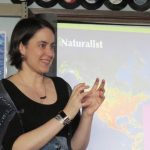
In episode 45, Liz MacDonald from the NASA's Goddard Space Flight Center, discusses in her research into STEVE, a previously unrecorded atmospheric phenomenon discovered by citizen scientists in late 2016 that appears as a ribbon of flickering purple and green light in the night sky. Her open-access article "New science ...
Listen to Episode
Listen to Episode
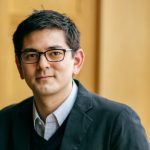
Can your doctor's beliefs about the efficacy of a treatment affect how you experience pain? In episode 65, we’re joined by Luke Chang from the Department of Psychological & Brain Sciences at Dartmouth College. He talks with us about his research into socially transmitted placebo effects, through which patients can ...
Listen to Episode
Listen to Episode

Might enabling computational aids to "self-correct" when they’re out of sync with people be a path toward their exhibition of recognizably intelligent behavior? In episode 46, Neera Jain from Purdue University discusses in her experiments into monitoring our trust in AI's abilities so as to drive us more safely, care ...
Listen to Episode
Listen to Episode
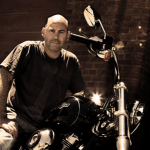
We set out talk with David Kernot from Australia’s Defence Science and Technology Group about William Shakespeare's true identity, but soon discovered his work has implications on national security and suicide prevention, as well as diagnosing Alzheimer's years before it can be otherwise identified. In episode 23 of Parsing Science, ...
Listen to Episode
Listen to Episode

What factors best predict success at college among youth formerly in foster care? In Episode 68, Royel Johnson from Pennsylvania State University's Department of Education Policy Studies discusses systematic literature review of research on the college success of this historically underserved population. His article “The state of research on undergraduate youth ...
Listen to Episode
Listen to Episode
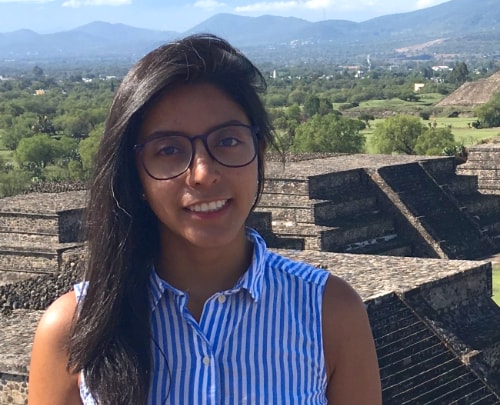
What effect did copying the U.S.'s legal system have on Colombia's incarceration system? In episode 92, Ángela Zorro Medina from the University of Chicago discussed her research into how transitioning to an adversarial model of criminal procedure – one controlled by the prosecutor and defense, rather than by the judge ...
Listen to Episode
Listen to Episode
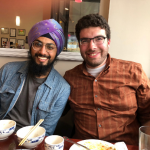
Sam Mehr and Manvir Singh from Harvard's Music Lab talk with us about their research suggesting that people across the world can detect the social purpose of other cultures' songs based only on how they sound. Their open-access article, "Form and function in human song" was published in Current Biology on February 5th 2018 ...
Listen to Episode
Listen to Episode
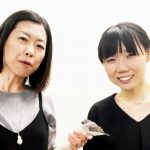
Could birds' courting behaviors change when they're being watched? In episode 42, Masayo Soma from Hokkaido University discusses her research into monogamous songbirds which intensify their singing and dancing during courtship rituals – but only while in the presence of an audience of other birds. Her open-access article "Couples showing off: ...
Listen to Episode
Listen to Episode

Why do some of us choose to remain ignorant of information that - though perhaps unpleasant - could help us make better informed decisions in the future? In episode 76, Emily Ho from Northwestern University’s Department of Medical Social Sciences discusses her research into why we keep our heads in ...
Listen to Episode
Listen to Episode
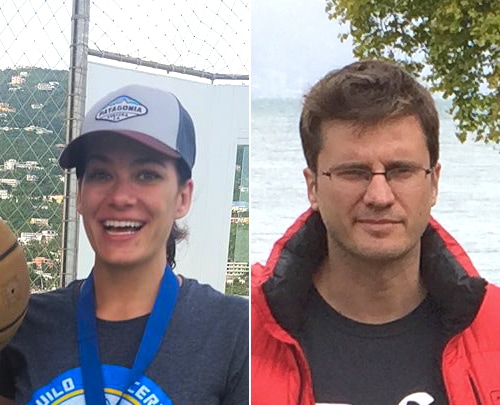
Should I have done something differently? Or could nobody have seen it coming? In episode 84 Satoris "Tori" Howes from Oregon State University-Cascades and Edgar "Ed" Kausel from Pontificia Universidad Catolica de Chile join us to discuss their research into the malleability of narcissists' memory, as well as whether they're able ...
Listen to Episode
Listen to Episode

Why is it that we treat various species of animals so differently? In episode 71, Veronica Sevillano with the Autonomous University of Madrid discusses her research applying social psychology and conservation biology to understand the relationships people have with animals. Her chapter, "Animals as social groups: An intergroup relations analysis of human-animal ...
Listen to Episode
Listen to Episode
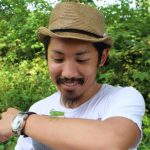
When in Rome, should you really do as the Romans do? In episode 50, Wataru Toyokawa from the University of Konstanz in Germany discusses how observing and imitating others in crowds can at times enhance collective ‘wisdom’ ... while other times it can lead to collective ‘madness.’ His article, "Social ...
Listen to Episode
Listen to Episode
